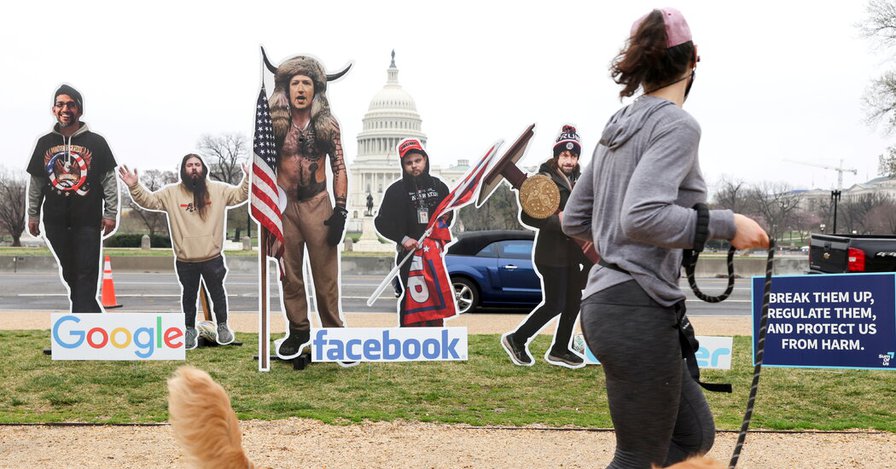‘Belonging Is Stronger Than Facts’: The Age of Misinformation - The New York Times

my notes ( ? )
"social and psychological forces that make people prone to sharing and believing misinformation ... are on the rise" - not so much created by bad actors, but exploited by them. Why?
“cognitive and memory limitations, directional motivations to defend or support some group identity or existing belief, and messages from other people and political elites... people become more prone to misinformation when:"
people need "ingrouping — a belief that their social identity is a source of strength and superiority, and that other groups can be blamed for their problems... we seek security in groups ... [like] information... that lets us see the world as a conflict putting our righteous ingroup against a nefarious outgroup.". Two critical factors:
- social destabilization ... by unwanted change or ... feelings of powerlessness
- social polarization... "greater partisan divisions in social identity are generating intense hostility ... social distrust... makes people more prone to rumor and falsehood... cling more tightly to their partisan identities... desperately hungry for information affirming ... us versus them, and much less concerned about things like truth or accuracy."
"high-profile political figures who encourage followers' desire for identity-affirming misinformation... all-out political conflict often benefits those leaders "
"shift to social media:
- powerful outlet for composers of disinformation
- pervasive vector for misinformation itself
- multiplier of the other risk factors...
when misinformation appeals to social impulses more than the truth does, it gets more attention online, which means people feel rewarded and encouraged for spreading it [because] humans are very sensitive to social reward... Twitter users ... retweet to show approval, argue, gain attention and entertain... Truthfulness ... was not an identified motivation... We bond with our team by yelling at the fans of the other one... belonging is stronger than facts"
Read the Full Post
The above notes were curated from the full post www.nytimes.com/2021/05/07/world/asia/misinformation-disinformation-fake-news.html.Related reading
More Stuff I Like
More Stuff tagged social media , tribe , disinformation , polarization , identity
See also: Content Strategy , Social Media Strategy , Content Creation & Marketing , Surveillance Capitalism, Social media and Polarisation (Overview) , Social Web , Media , Politics